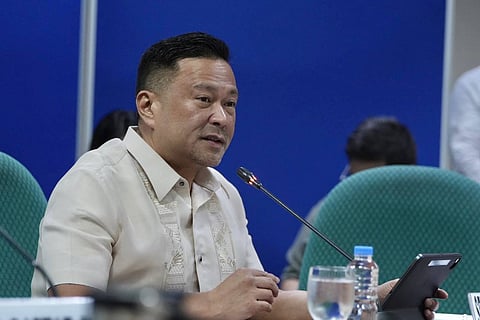
- NEWS
- the EDIT
- COMMENTARY
- BUSINESS
- LIFE
- SHOW
- ACTION
- GLOBAL GOALS
- SNAPS
- DYARYO TIRADA
- MORE

Senator Joseph Victor Ejercito yesterday expressed support for President Ferdinand Marcos Jr.’s plan to form an independent commission to investigate anomalies in flood control projects.
“We support the creation of an independent commission to investigate the anomalous flood control projects. Congress should not be investigating itself — except in aid of legislation — especially since there is a possibility that some members may be involved,” he said.
“It is better for the commission to take the lead to ensure accountability and restore the people’s trust,” he added.
Ejercito said he proposed that the commission be composed of engineers, professionals, and retired justices of unquestionable integrity, as well as representatives from the religious sector and civil society groups.
“This needs to end. It’s a shame for the whole world. Above all, it’s time to restore the people’s trust in the government,” he said.
“Only by holding those guilty accountable can we protect the innocent, restore the trust of the public, and show taxpayers that their money is not being stolen with impunity.”
Last week, Malacañang said an executive order establishing the independent body is being finalized.
In an online podcast interview, Marcos explained that the proposed commission will be “completely separate from government” and will have the authority to investigate “anything and anyone,” including members of Congress.
“Otherwise, they will say there’s a sacred cow or someone is being protected because they are part of politics, whatever,” Marcos said. “If that happens, their investigation will be meaningless.”
The President also expressed shock at how deeply embedded the problem has become, recalling his time as governor.
“I can’t believe we’re here, that the government is like this,” he said. “How did we evolve? How did the system evolve so it became like this? It did not happen overnight. This happened over many decades.”
Marcos stressed that his goal is not only to hold people accountable but also to fix the system to prevent future corruption, saying the problem grew pervasive because it was “allowed.”
“It became allowable,” he said. “‘It’s okay.’ ‘That’s not a problem. That’s not a crime. Just go on.’”
